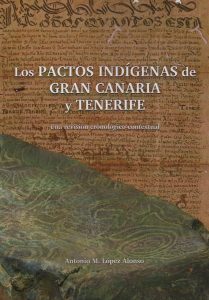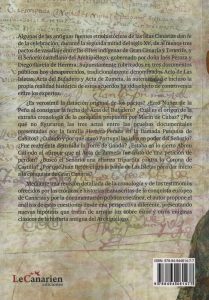Synopsis
Some of the ancient ethnohistorical sources of the Canary Islands attest to the celebration, during the second half of the fifteenth century, of at least three pacts of vassalage among the indigenous elites of Gran Canaria and Tenerife, and the Castilian Lordship of the Archipelago, ruled by Doña Inés Peraza and Diego García de Herrera. Supposedly sealed in three public documents missing nowadays, traditionally known as Act of Las Isletas, Act of Bufadero and Act of Zumeta, the authenticity and even the very historical reality of these agreements has been a subject of controversy among experts.
Are plausible the datings of these pacts? Did Núñez de la Peña fail to record the date of the Act of Bufadero? What is the origin of the strange chronology of the conquest proposed by Arias Marín de Cubas? Why were not the three acts included in the documentary evidence submitted by the Herrera-Peraza family in the so-called Cabitos’ Inquiry? When and why Portugal attacked the islands owned by the Lordship? Was it really destroyed the Tower of Gando? Was Abreu Galindo right in stating that the Act of Zumeta was the result of a pleading for forgiveness? Did the Lordship seek a tripartite alliance against the Crown of Castile? Why Juan Rejón chose the bay of Las Isletas to begin the conquest of Gran Canaria?
Through a detailed review of the chronology and the testimony offered by the handwritten chronicles and histories of the European conquest of the Canary Islands, and contemporary public documents, the author proposes the analysis of these questions from a different perspective, presenting new hypotheses that try to respond to these and other classic enigmas of the historiography of the Archipelago.
Antonio M. López Alonso


